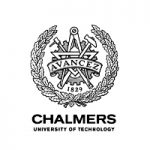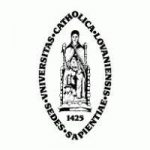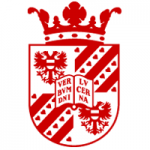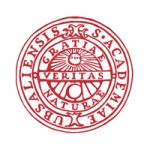项目介绍
How can we reduce energy consumption in the mining industry? The entire mining industry consumes approximately 3.5% of the total global energy. About a quarter of this is used for comminution which is the process of reducing the size of mined ore into particles small enough to separate and retrieve the valuable minerals.
This PhD position aims to accelerate the adoption of a novel low energy crushing and milling (comminution) technology for mining and mineral processing. The PhD research is focused on modelling and simulation, laboratory experiments and analysis of the critical mechanical interaction between the machine and the rock particles, which is where the energy use is happening. The PhD student will be part of a research group Chalmers Rock Processing Systems which has a wide international collaboration when it comes to aggregates production and minerals processing.
Project description
The PhD research position is within the Vinnova-Embrapii project – “Modelling, simulating and benchmarking a new energy-efficient and sustainable comminution technology”. The scope of the project is to accurately model the single particle fracture mechanism of the low energy milling machine, enabling it to be simulated and designed at the production scale together with other project stakeholders like Federal University of Rio de Janeiro, Centre for Mineral Technology, Vale S.A. and Comminution Reimagined Sweden AB. The project objectives include detailed understanding and accurate modelling of the single particle fracture mechanism and particle size reduction from an engineering perspective to achieve mineral liberation and recovery. This will include data collection, laboratory experiments and analysis of the mechanical interaction of the crushing/milling machine with the rock particles through modelling and simulation. You will work closely with other PhD students and senior scientists within the Chalmers Rock Processing Systems group as well as other researchers within the Vinnova-Embrapii project and other international collaborations.
Department of Industrial and Materials Science
The main competencies at the Department of Industrial and Materials Science are found in the areas of: Human-Technology Interaction, Form and Function, Modeling and Simulation, Product Development, Material, Production and in the interaction between these areas. The research develops the industrial process from need to finished product, while creating added value. By combining skills throughout the chain, the department is distinguished both nationally and internationally. Here we gather internationally competitive researchers, in dynamic and outstanding research environments, as well as in national and international research networks.
Information about the division
The position will be based at the Division of Product Development. The division provides new methods and tools for virtual platform-based development of sustainable and robust products, as well as product development processes in a lifecycle perspective. The research is based on design methodology, mechanical engineering, mechanics, statistics, information technology and optimization.
The Machine Element Group (also called Chalmers Rock Processing Systems group) deals with the modelling and optimization of components, machines and systems in industrial applications. Current research activities are centered around equipment and process modelling, optimization and environmental impact assessments for aggregate production and minerals processing in mining for metal extraction.
Major responsibilities
As a PhD student, your main responsibility is to pursue your own doctoral studies, which comprises work on the modelling new technology for crushing/milling within the Vinnova-Embrapii project – “Modelling, simulating and benchmarking a new energy-efficient and sustainable comminution technology”. You are expected to work independently, have the ability to plan and organize your work, work in close collaboration with other group members and partners, and be able to communicate scientific results, both orally and in written form in English.
The doctoral program is supposed to lead to the doctoral degree, equivalent to four years of full-time studies, which includes research, coursework, and participation in seminars and conferences.
The position also includes teaching at Chalmers’ undergraduate level corresponding to 20 percent of your working hours. You are expected to write a licentiate thesis within 2.5 years and defend your doctoral thesis within 5 years.
Read more about doctoral studies at Chalmers here.
Qualifications
The position requires a Master of Science in computational engineering, mechanical engineering, applied mechanics, complex adaptive systems, engineering mathematics, system control and mechatronics, engineering physics, physics, or other relevant areas.
You have a profound interest in modeling, simulation and sustainability, strong engineering skills, programming, and excellent written and spoken English communication skills.
Spoken Swedish is also a merit (Chalmers offers Swedish courses as well), as well as a valid driver’s license, and you have an excellent academic track record, a strong motivation and a commitment to scientific inquiry.
To qualify as a PhD student, you must have a master’s level degree corresponding to at least 240 higher education credits in a relevant field.
Contract terms
Full-time temporary employment. The position is limited to a maximum of five years.
We offerChalmers offers a cultivating and inspiring working environment in the coastal city of Gothenburg.
Read more about working at Chalmers and our benefits for employees.
Chalmers aims to actively improve our gender balance. We work broadly with equality projects, for example the GENIE Initiative on gender equality for excellence. Equality and diversity are substantial foundations in all activities at Chalmers.
Application procedure
The application should be marked with reference number 20240360 and written in English. The application should be sent electronically and be attached as PDF-files, as below. Maximum size for each file is 40 MB. Please note that the system does not support Zip files.
CV: (Please name the document: CV, Family name, reference number)
• CV
• Other, for example previous employments or leadership qualifications and positions of trust.
• Two references that we can contact.
Personal letter: (Please name the document as: Personal letter, Family name, ref.number)
1-3 pages where you:
• Introduce yourself
• Describe your previous experience of relevance for the position (e.g. education, thesis work and, if applicable, any other research activities)
• Describe your future goals and future research focus
Other documents:
• Copies of bachelor and/or master’s thesis.
• Attested copies and transcripts of completed education, grades and other certificates, e.g. TOEFL test results.
Use the button at the foot of the page to reach the application form.
Please note: The applicant is responsible for ensuring that the application is complete. Incomplete applications and applications sent by email will not be considered.
Application deadline: 2024-07-31
For questions, please contact:
Professor Magnus Evertsson, IMS,
magnus.evertsson@chalmers.se, +46709218708
联系方式
电话: +46 (0)31-772 10 00相关项目推荐
KD博士实时收录全球顶尖院校的博士项目,总有一个项目等着你!






